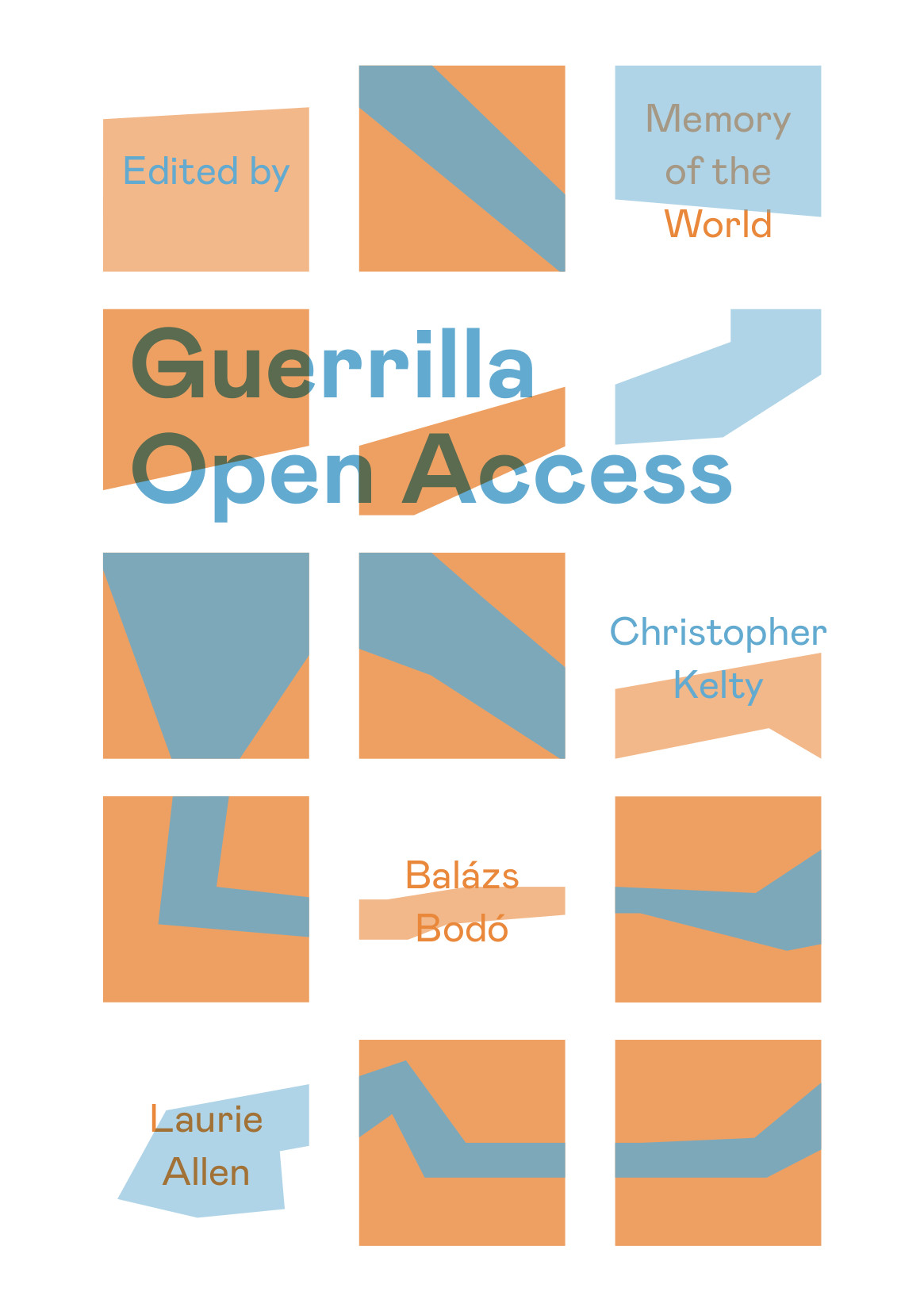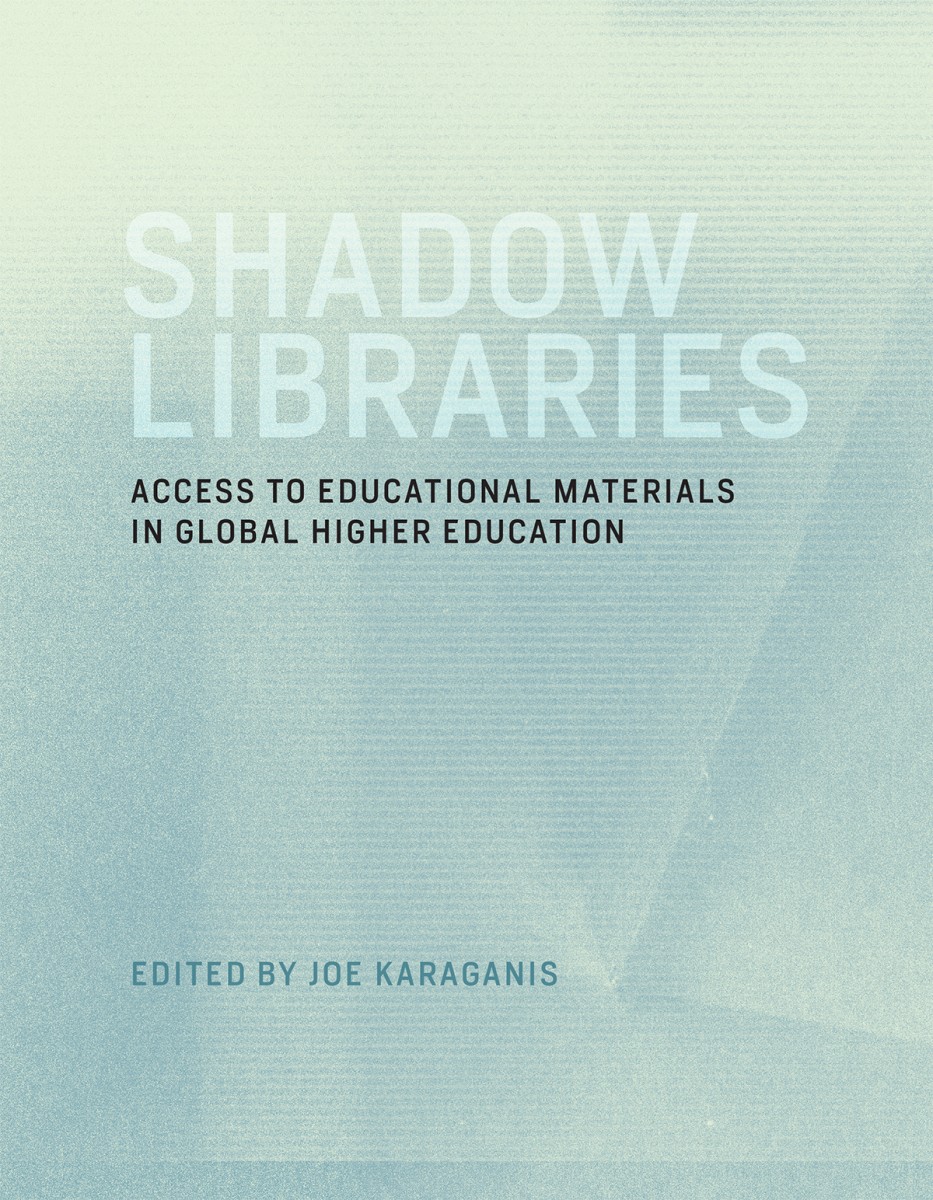Memory of the World (ed.): Guerrilla Open Access (2018)
Filed under pamphlet | Tags: · book, copyright, free software, knowledge production, open access, piracy, publishing, shadow library

“In the 1990s, the Internet offered a horizon from which to imagine what society could become, promising autonomy and self-organization next to redistribution of wealth and collectivized means of production. While the former was in line with the dominant ideology of freedom, the latter ran contrary to the expanding enclosures in capitalist globalization. This antagonism has led to epochal copyrights, where free software and piracy kept the promise of radical commoning alive.
As the contributions to this pamphlet indicate, the terms of struggle have shifted: not only do we have to continue defending our shadow libraries, but we need to take back the autonomy of knowledge production and rebuild institutional grounds of solidarity.”
With texts by Memory of the World, Christopher Kelty, Balázs Bodó, and Laurie Allen.
Publisher Post Office Press, Rope Press, and Memory of the World, Coventry, 2018
Radical Open Access II series
Creative Commons BY-SA 4.0 License
34 pages
Joe Karaganis (ed.): Shadow Libraries: Access to Knowledge in Global Higher Education (2018)
Filed under book | Tags: · copyright, digital library, knowledge, library, open access, piracy, publishing, shadow library

“Examining the new ecosystems of access that are emerging in middle- and low-income countries as opportunities for higher education expand but funding for materials shrinks.
Even as middle- and low-income countries expand their higher education systems, their governments are retreating from responsibility for funding and managing this expansion. The public provision of educational materials in these contexts is rare; instead, libraries, faculty, and students are on their own to get what they need. Shadow Libraries explores the new ecosystem of access, charting the flow of educational and research materials from authors to publishers to libraries to students, and from comparatively rich universities to poorer ones. In countries from Russia to Brazil, the weakness of formal models of access was countered by the growth of informal ones. By the early 2000s, the principal form of access to materials was informal copying and sharing. Since then, such unauthorized archives as Libgen, Gigapedia, and Sci-Hub have become global “shadow libraries,” with massive aggregations of downloadable scholarly materials.
The chapters consider experiments with access in a range of middle- and low-income countries, describing, among other things, the Russian samizdat tradition and the connection of illicit copying to resistance to oppression; BiblioFyL, an online archive built by students at the University of Buenos Aires; education policy and the daily practices of students in post-Apartheid South Africa; the politics of access in India; and copy culture in Brazil.”
Contributors: Balázs Bodó, Laura Czerniewicz, Miroslaw Filiciak, Mariana Fossatti, Jorge Gemetto, Eve Gray, Evelin Heidel, Joe Karaganis, Lawrence Liang, Pedro Mizukami, Jhessica Reia, Alek Tarkowski
Publisher MIT Press, Cambridge/MA; International Development Research Centre, Ottawa; and The American Assembly at Columbia University, New York, 2018
Creative Commons Attribution-NonCommercial 4.0 International License
ISBN 9780262535014, 0262535017
313 pages
PDF, PDF (8 MB)
EPUB (added on 2018-5-31)
HTML (added on 2018-9-23)
See also Media Piracy in Emerging Economies, 2011.
Comment (0)Caren Irr: Pink Pirates: Contemporary American Women Writers and Copyright (2010)
Filed under book | Tags: · copyright, feminism, history of literature, literary criticism, literary theory, literature, piracy

“Readings of contemporary American women writers, controversies over copyright, and feminist theory
Today, copyright is everywhere, surrounded by a thicket of no trespassing signs that mark creative work as private property. Caren Irr’s Pink Pirates asks how contemporary novelists—represented by Ursula Le Guin, Andrea Barrett, Kathy Acker, and Leslie Marmon Silko—have read those signs, arguing that for feminist writers in particular copyright often conjures up the persistent exclusion of women from ownership. Bringing together voices from law schools, courtrooms, and the writer’s desk, Irr shows how some of the most inventive contemporary feminist novelists have reacted to this history.
Explaining the complex, three-century lineage of Anglo-American copyright law in clear, accessible terms and wrestling with some of copyright law’s most deeply rooted assumptions, Irr sets the stage for a feminist reappraisal of the figure of the literary pirate in the late twentieth century—a figure outside the restrictive bounds of U.S. copyright statutes.
Going beyond her readings of contemporary women authors, Irr’s exhaustive history of how women have fared under intellectual property regimes speaks to broader political, social, and economic implications and engages digital-era excitement about the commons with the most utopian and materialist strains in feminist criticism.”
Publisher University of Iowa Press, 2010
ISBN 1587299127, 9781587299124
220 pages
via wX
Reviews: Madeleine Monson-Rosen (Mediations, 2010), Sean Latham (Modern Language Quarterly, 2012).
Comments (2)
